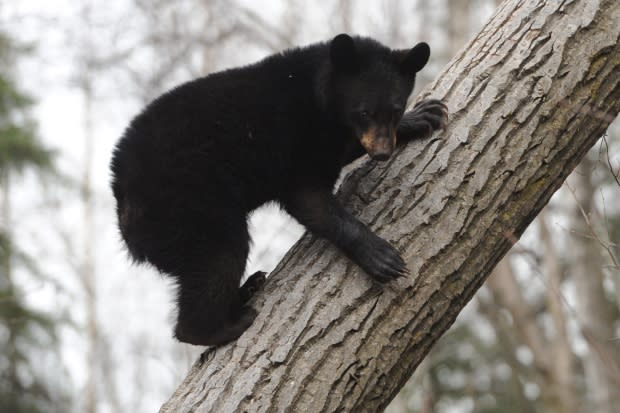Number of human-bear conflicts growing across Alaska
Wildlife experts are calling this summer one of the busiest years of bear encounters they have seen.
Biologists believe that poor berry crops and struggling salmon are motivating the hungry bears to wander away from the woods and go into towns, the Anchorage Daily News reported.
Recent incidents include a black bear taking over the Juneau arboretum and another bruin that shut down a fish-cleaning facility.
A rise in the numbers of young black bears may also be contributing to the growing total of human-bear conflicts, biologists said. Humans also add to the problem by failing to secure trash or having chicken coops without bear-halting electric fences.
'A perfect storm'
"We have a perfect storm — a bumper crop of young animals, what appears to be [food] resource failure, and then highly accessible trash," said Charlotte Westing, area management biologist in Cordova.
Sgt. Robin Morrisett, an Alaska wildlife trooper in Cordova, where the fish-cleaning station is located, is handing out $310 tickets to people who do not properly protect their trash.

Community leaders, including some in Anchorage, are considering pursuing new rules requiring better trash management given the increased potential for confrontations.
He acknowledges, however, that sometimes people are not at fault.
Goal to avoid killing bears
Morrisett recalled one incident where a black bear shredded wooden barriers to get to the garbage cans that were inside. Bears can also break into commercial dumpsters that have protective plastic panels, he said.
"We are just getting hammered with bears and DLPs," Morrisett said, referring to bear kills made by people under defence of life and property.
Morrisett has had to kill about four bears this year, including one black bear that got on salmon boats. He said he wants to avoid killing any bears, if possible.
"He's a critter, one of God's creatures," Morrisett said. "We just don't need to kill 'em all."

